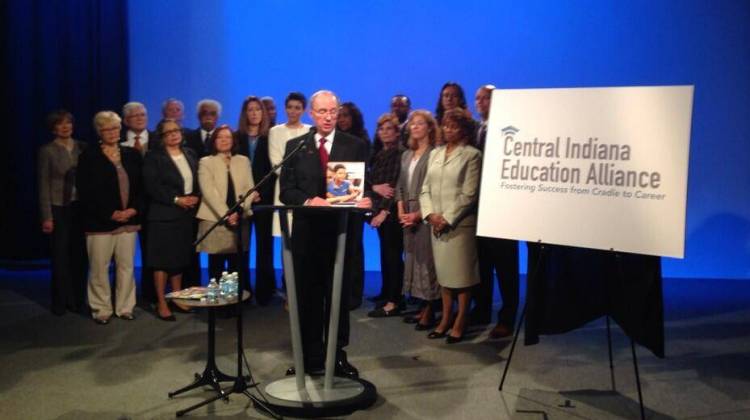The Central Indiana Education Alliance is releasing its fourth annual report.
There are encouraging numbers when it comes to reading levels and graduation, but officials say more still needs to be done to increase the number of Marion County residents completing college.
The organization is made up of education, business, and civic groups working to ensure kids are better prepared for every level of school.
The Alliance report finds that the four-year graduation rate for Marion County students was up 13 percent between 2009 and 2012, and reading scores are up 60 percent in an IPad pilot program run by the CIEA.
Associate Dean of the School of Education at IUPUI, Pat Rogan credits the increases to more people and groups getting involved.
"There are a lot of players being brought in for mentorships, tutors, coaches -- graduation coaches, a lot of different terms being used -- to identify students who are at risk of not graduating and guiding them to that point of success," she said.
But, the Alliance says more needs to be done to ensure that Marion County residents go to college and finish.
IUPUI Chancellor Charles Bantz says 125,000 residents have some college credits, but no degree, and that makes a real financial difference.
"The 2012 data on Marion County median income reinforces what we know to be the case," said Bantz. "If you are simply a high school graduate, so getting everyone through high school, the median income is $26,000. Whereas, (with) college graduates it's nearly $42,000.”
Yet, Rogan says many students still struggle to complete getting diplomas and degrees because they are playing catch up early on.
“We've got a majority of our youth in urban context that are going to low quality preschools, if at all," said Rogan. "That does not serve them well as a running start compared to their more privileged peers.”
She points to the state’s early childhood education system as part of the problem.
Lawmakers approved a $10 million pilot program this past session to pay for low income students to attend preschool in five counties.
Rogan calls the move a Band-Aid.
“Why do we feel we need a pilot when the data is overwhelming?," she said. "Most of the other states are way ahead of us. So, while it is commendable that we finally took action as a state, it is not anywhere what we need in terms of early childhood services.”
And because the work is never ending, the Alliance is hosting “Education Weekend” later this month. Bantz sees it as an opportunity to have a conversation on how to improve outcomes and the education system.
“Its theme is quality, equity and success, looking back and moving forward," said Bantz. "That message suggests that while we retain effective practices and strategies, we continue to explore innovative, comprehensive ways to address current and future educational challenges.”
Co-chair Jamal Smith says there is a lot of publicity and attention given to educational shortcomings. He thinks the events are a chance to showcase what’s being done right.
"Whether it's a student who has overcome trials and tribulations to achieve academic success or a teacher who has a limited budget and has still found ways to do very, very good work academically for their students...those things, people, and places exists," said Smith. "One of the focal points for the weekend is to make sure that we highlight those educational pluses."
The three-day event is May 16-18.
 DONATE
DONATE






 View More Articles
View More Articles


 Support WFYI. We can't do it without you.
Support WFYI. We can't do it without you.